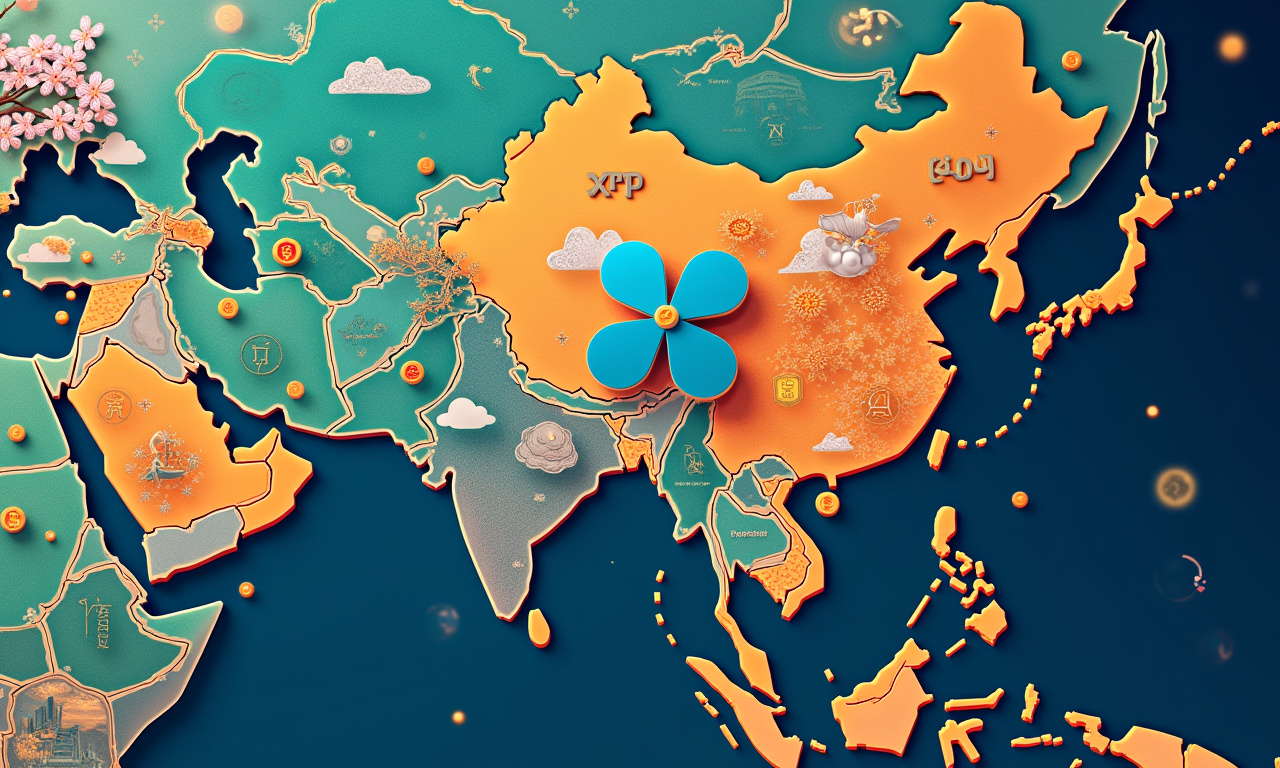
3 Reasons Saudi's AI Fund Signals a Major Shift in Global Tech Power

Liu Wenjing
The launch of Saudi Arabia's Wyld VC, a $50 million fund focused on early-stage AI startups in MENA and the Bay Area, isn't just another venture capital announcement. More than anything else, it’s a seismic tremor, one that is signaling a fundamental shift in the global technology landscape. Why? You might ask. This isn’t just a fight over dollars; this is a fight over power, influence, and the future of innovation.
MENA Is A Tech Investment Hotspot
For too long, the Middle East and North Africa have been seen as just big oil producers. That narrative is changing, quickly. To be sure, the sheer amount of capital sloshing around in the Gulf states is impressive, but now it is being deployed strategically and intentionally. We’re witnessing in real-time a deliberate effort to change economic dependence on oil, and AI is seen as that golden ticket.
Think of it like this: for decades, tech innovation has largely flowed from West to East, primarily from the US to China. Fast forward to today, and we might be witnessing capital starting to flow in the reverse direction, from the Gulf back to Silicon Valley. This new fund is intended to match Gulf capital with Silicon Valley innovation, in particular speeding up AI development. It’s more than the bottom line. It’s not just about having a seat at the table, it’s about being active partners in guiding AI development and shaping the future of technology.
The recent $52 million Series A funding secured by Cairo-based proptech Nawy for MENA expansion is another clear example of this trend. With capital flooding into the region and savvy investors taking notice, it’s becoming clear. This isn’t some flash in the pan. Beyond this recognition, it is a strategic move with the potential to further position MENA as a key player in the global tech ecosystem.
AI Fuels Economic Diversification Dreams
Our friends in the Middle East know they can’t put all their eggs in one basket. Oil is not a permanent resource, and these countries are making moves to find a replacement. AI is no longer considered the next great thing, but rather a game-changing key ingredient to remaking the economy.
The UAE and Saudi Arabia aren’t waiting. Both countries have aggressively been constructing data centers while courting AI investments and research groups. They see AI as a comparable resource to oil. It is regional investment that can drive growth in their communities and give their economies the spark they need for generations to follow. We’re creating much more than fancy tech toys. We’re building a clean energy economy, creating millions of new jobs and winning a future that runs on clean, renewable energy—not fossil fuels.
AI isn't just about algorithms and data. It’s not just a nice catchphrase—it’s about new opportunities in every sector of our economy, from healthcare to finance, transportation to manufacturing. MENA countries are wagering enormous sums on AI to drive innovation and build a healthier, more sustainable, more diversified economy. This is a long-term play, and the Wyld VC fund is just one part of that strategy.
US-China AI Dominance Faces Challenges
The AI race has mostly been portrayed as a US versus China two-horse race. This latest Saudi fund really complicates that story. It further signals the ground is shifting toward what could be a third potential power player in the Washington AI arena.
It’s not simply about the money, it’s about what that money means strategically. Saudi Arabia has very deep ties to both the US and China. This uniquely positions the country to be a bridge between these two technological superpowers. It can leverage its financial resources to attract talent and innovation from both sides, creating a more balanced and competitive landscape.
Think of it in terms of geopolitics. The US and China are in fierce competition for global influence, and technology is at the center of this fight. Saudi Arabia is making mega investments in AI to create its own niche. In doing so, the country is wielding its considerable influence without having to take sides. That would help counter a more technology multipolar world. Under this scenario, no one country would be able to claim unqualified superiority in AI.
Consider the implications for international relations. If Saudi Arabia succeeds in becoming the world’s primary AI hub, it will draw in top researchers, entrepreneurs, and investors from every corner of the globe. This would ultimately produce a greater diversity of new partnerships and collaborations, creating industry and a more distributed decentralized approach to AI tech development. This is a challenge to the status quo and this creates openings for new players to come in.
We need to be realistic about the challenges ahead. Ethical issues in AI, especially with regards to data privacy and bias, must be prioritized. In addition, the environmental impact of AI, energy consumption and e-waste not excluded, is where AI’s greenwashing starts to fade. These are the important things to keep in mind as MENA countries continue to increase their investments in AI.
The launch of the Wyld VC fund is a wake-up call. It’s emblematic of a broader sea change in the global tech landscape, as new players start to tip the balance of power. Whether you're an investor, an entrepreneur, or simply someone interested in the future of technology, it's time to pay attention to what's happening in the Middle East. The future of AI is being written today, and it’s not only being written in Silicon Valley or Beijing. That’s also being written in Riyadh, Abu Dhabi, and Cairo.

